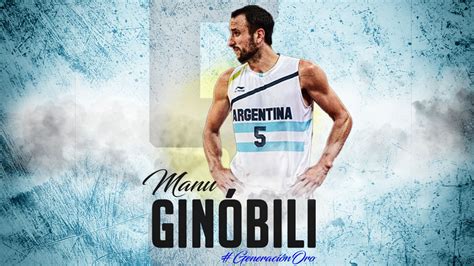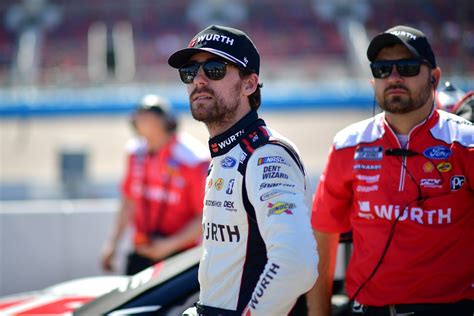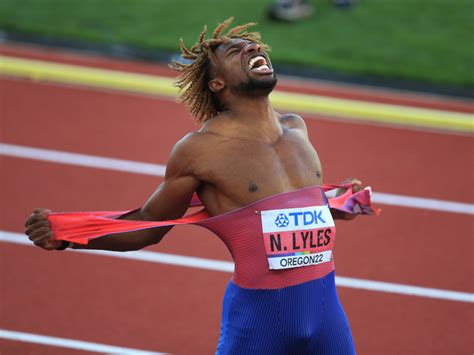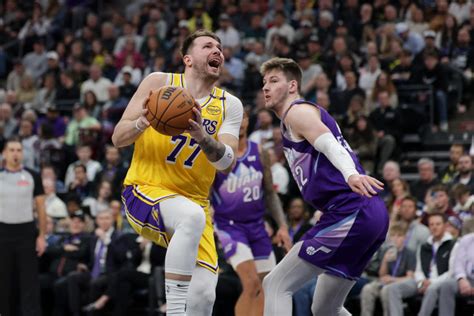
Nikola Jokic, the Denver Nuggets superstar and two-time NBA MVP, has sparked considerable debate by naming Argentinian basketball legend Manu Ginobili as his personal GOAT (Greatest of All Time), a surprising departure from the commonly cited names like Michael Jordan or LeBron James.
Denver Nuggets center Nikola Jokic recently revealed his unconventional choice for the title of GOAT, igniting a widespread discussion among basketball fans and analysts. In a surprising declaration, Jokic named Manu Ginobili, the former San Antonio Spurs standout, as his personal pick for the greatest player of all time. This unexpected choice deviates significantly from the conventional selections typically dominated by Michael Jordan, LeBron James, Kareem Abdul-Jabbar, and Bill Russell.
“My GOAT is Manu Ginobili,” Jokic stated, as reported by Yahoo Sports. “Because he was left-handed like me.” This seemingly simple rationale underscores Jokic’s admiration for Ginobili’s playing style and shared handedness, highlighting the subjective nature of greatness and the personal connections that influence such choices.
The announcement, made public earlier this week, has reverberated across the NBA landscape, drawing reactions ranging from amused acceptance to outright disbelief. While Jokic’s on-court achievements cement his status as one of the league’s premier talents, his selection of Ginobili as the GOAT offers a unique glimpse into his basketball inspirations and individual perspective.
Manu Ginobili, celebrated for his illustrious career with the San Antonio Spurs, boasts an impressive resume that includes four NBA championships, two All-Star selections, and the 2008 Sixth Man of the Year award. Beyond his NBA success, Ginobili also led Argentina to an Olympic gold medal in 2004, defeating a heavily favored United States team. His remarkable blend of skill, athleticism, and competitive spirit established him as a revered figure in international basketball.
However, compared to the career statistics and accolades of Jordan, James, or Abdul-Jabbar, Ginobili’s achievements fall short of the traditional benchmarks used to measure GOAT status. Jordan’s six NBA titles, five MVP awards, and six Finals MVP awards; James’ four NBA titles, four MVP awards, and four Finals MVP awards; and Abdul-Jabbar’s six NBA titles and six MVP awards, provide a stark contrast to Ginobili’s individual accomplishments. This disparity underscores the personal nature of Jokic’s choice, emphasizing the influence of subjective factors over objective metrics.
Jokic’s preference for Ginobili transcends mere statistical comparisons. It reflects a deeper appreciation for Ginobili’s playing style, his impact on the game, and the shared connection they have as left-handed players. The Nuggets superstar has often spoken about admiring players who possess exceptional court vision, passing ability, and an unselfish approach to the game – qualities that Ginobili exemplified throughout his career.
“He was left-handed like me,” Jokic explained, shedding light on the personal connection that swayed his choice. This rationale resonates with many fans who appreciate the nuances of the game and the individual preferences that shape perceptions of greatness. While Jordan and James are often lauded for their scoring prowess and physical dominance, Ginobili carved out his legacy through his versatility, basketball IQ, and unwavering commitment to team success.
The discussion surrounding Jokic’s GOAT selection also brings into focus the evolving definition of greatness in basketball. While statistical achievements and championship rings remain crucial factors, the modern game increasingly values qualities such as leadership, adaptability, and international impact. Ginobili’s influence on the globalization of basketball, particularly his impact on Argentinian basketball, cannot be overstated.
His success in the NBA paved the way for other international players, demonstrating that talent and skill could transcend geographical boundaries. Ginobili’s legacy extends far beyond his individual statistics, encompassing his role as an ambassador for the game and an inspiration to aspiring players around the world.
Furthermore, Jokic’s admiration for Ginobili highlights the importance of role models in shaping a player’s development. Growing up, Jokic likely watched Ginobili’s games, studying his movements, analyzing his decisions, and absorbing his competitive spirit. Ginobili’s example may have influenced Jokic’s own playing style, encouraging him to develop his passing skills, court vision, and unselfish approach to the game.
In an era dominated by highlight-reel plays and individual accolades, Jokic’s choice of Ginobili serves as a reminder that greatness is often defined by more than just statistics. It is about impact, influence, and the personal connections that resonate with players and fans alike. While the debate over the NBA’s GOAT may never be definitively settled, Jokic’s selection of Manu Ginobili has undoubtedly added a new dimension to the discussion.
This is not the first time Jokic has expressed admiration for Ginobili. In previous interviews, he has spoken about watching Ginobili’s games as a young player and being inspired by his unique playing style. He has also praised Ginobili’s leadership qualities and his ability to elevate the play of his teammates.
“He was a winner,” Jokic said of Ginobili in a past interview. “He always put the team first, and he always found a way to make his teammates better.”
The reactions to Jokic’s statement have been varied, with some fans praising his unconventional choice and others questioning his reasoning. Many basketball analysts have weighed in on the debate, offering their own perspectives on the GOAT debate and the merits of Jokic’s selection.
“It’s a subjective thing,” said ESPN analyst Stephen A. Smith. “Everyone has their own criteria for what makes a player the GOAT. For Jokic, it’s clear that he values Ginobili’s playing style, his leadership, and his impact on the game.”
However, other analysts have argued that Ginobili’s statistical achievements and individual accolades do not measure up to those of Jordan, James, or Abdul-Jabbar.
“Ginobili was a great player, no doubt,” said former NBA player and current analyst Charles Barkley. “But he’s not in the same conversation as those other guys. They were on a different level.”
Regardless of the differing opinions, Jokic’s statement has undoubtedly sparked a lively debate and brought renewed attention to the legacy of Manu Ginobili. It also highlights the subjective nature of the GOAT debate and the personal connections that influence such choices. While Jordan and James may remain the frontrunners in the eyes of most fans and analysts, Jokic’s selection of Ginobili serves as a reminder that greatness can be defined in many different ways.
The impact of Jokic’s statement will likely extend beyond the immediate news cycle. It could potentially influence the way future generations of players and fans perceive greatness in basketball, encouraging them to look beyond statistics and consider the broader impact of a player’s career.
Ultimately, the GOAT debate is a matter of personal opinion, and there is no right or wrong answer. However, Jokic’s selection of Manu Ginobili has undoubtedly added a new and intriguing perspective to the discussion. It underscores the importance of individual preferences, the impact of role models, and the evolving definition of greatness in the ever-changing landscape of basketball. As the debate continues, one thing is certain: Nikola Jokic has given basketball fans plenty to think about.
The Nuggets are coming off a season where they were eliminated in the second round of the playoffs. Expectations are high for the team this year, and Jokic will be looking to lead them to their first NBA championship. His unique perspective on the game, as evidenced by his GOAT selection, will undoubtedly continue to shape his approach to the game and his leadership of the Nuggets.
The choice also shines a light on the globalization of basketball and the increasing influence of international players in the NBA. Jokic, who hails from Serbia, is one of a growing number of international stars who have risen to prominence in the league. His selection of Ginobili, an Argentinian legend, further underscores the global reach of the game and the diverse backgrounds of its players.
Ginobili’s impact on Argentinian basketball is undeniable. He inspired a generation of players and helped to put Argentina on the map as a basketball powerhouse. His Olympic gold medal victory over the United States in 2004 is considered one of the greatest upsets in basketball history and cemented his status as a national hero.
Jokic’s admiration for Ginobili reflects a broader trend in the NBA, where players are increasingly looking to international stars for inspiration. Players like Dirk Nowitzki, Tony Parker, and Pau Gasol have all had a significant impact on the league, and their success has paved the way for other international players to follow in their footsteps.
The GOAT debate is a never-ending conversation, with fans and analysts constantly debating the merits of different players. While Jordan and James are often considered the two frontrunners, there are many other players who deserve to be in the conversation, including Abdul-Jabbar, Russell, and now, perhaps, Ginobili, thanks to Jokic’s endorsement.
Ultimately, the GOAT debate is a matter of personal opinion, and there is no definitive answer. However, Jokic’s selection of Ginobili has undoubtedly added a new and intriguing dimension to the discussion. It highlights the importance of individual preferences, the impact of role models, and the evolving definition of greatness in the ever-changing landscape of basketball.
The NBA continues to evolve, with new stars emerging every year. As the game changes, so too will the criteria for evaluating greatness. However, one thing will remain constant: the passion and debate that surround the GOAT debate will continue to captivate fans and analysts for generations to come. Jokic’s bold statement ensures that Manu Ginobili’s name will be part of that conversation, adding another layer of complexity and intrigue to the ongoing debate. The ripple effects of Jokic’s statement are likely to be felt for some time, as fans and analysts continue to dissect his reasoning and consider the broader implications for the GOAT debate.
Frequently Asked Questions (FAQ)
1. Why did Nikola Jokic choose Manu Ginobili as his GOAT, instead of more conventional choices like Michael Jordan or LeBron James?
Jokic stated his primary reason for choosing Ginobili was their shared handedness. “My GOAT is Manu Ginobili,” Jokic explained, “Because he was left-handed like me.” This highlights the personal and subjective nature of his choice, emphasizing admiration for Ginobili’s playing style and perhaps a deeper connection based on a shared characteristic. Additionally, Jokic has previously praised Ginobili’s unselfish play, leadership, and winning mentality.
2. What are Manu Ginobili’s major accomplishments in basketball?
Manu Ginobili had a highly successful career, primarily with the San Antonio Spurs. His accomplishments include:
- Four NBA Championships with the San Antonio Spurs (2003, 2005, 2007, 2014).
- Two-time NBA All-Star (2005, 2011).
- NBA Sixth Man of the Year (2008).
- Olympic Gold Medal with Argentina (2004), defeating the United States.
- EuroLeague Champion (2001).
- Italian League MVP (2001, 2002).
While these are impressive, they are arguably less decorated than the resumes of Jordan, James, or Abdul-Jabbar, reinforcing the personal aspect of Jokic’s selection.
3. How have people reacted to Jokic’s choice of Ginobili as the GOAT?
Reactions have been mixed. Some fans and analysts appreciate Jokic’s unconventional choice and understand the personal connection driving his decision. Others question his reasoning, pointing to Ginobili’s statistical and individual accolades being less impressive than those of Jordan, James, or other commonly cited GOAT candidates. ESPN analyst Stephen A. Smith acknowledged the subjective nature of the GOAT debate, while others like Charles Barkley argued that Ginobili isn’t in the same category as the traditionally mentioned GOATs.
4. How does Jokic’s choice reflect the globalization of basketball?
Jokic, a Serbian player, choosing Ginobili, an Argentinian legend, underscores the increasing influence of international players in the NBA and the global reach of the sport. Ginobili’s success paved the way for other international players, and Jokic’s admiration for him highlights the impact of international role models on aspiring players. It demonstrates that greatness in basketball is not confined to players from the United States and that international players are increasingly shaping the game.
5. What does this say about how greatness is defined in basketball?
Jokic’s choice challenges the traditional definition of greatness, which often heavily relies on statistics and championship rings. It emphasizes the importance of subjective factors such as playing style, leadership, impact on the game, and personal connections. It suggests that greatness can be defined in different ways, and that individual preferences play a significant role in shaping perceptions of the greatest player of all time. Jokic’s admiration for Ginobili’s unselfishness and team-first mentality suggests he values those qualities as hallmarks of greatness.
Expanded Contextual Analysis and In-Depth Discussion:
The ripple effects of Nikola Jokic’s seemingly simple declaration that Manu Ginobili is his GOAT reverberate far beyond a casual soundbite. It compels a deeper examination of the criteria we use to define greatness, the globalization of basketball, the impact of personal influences, and the ever-shifting narrative surrounding the NBA’s most cherished legends.
Firstly, it is essential to deconstruct the very concept of “GOAT.” The term, inherently subjective, is often weaponized in endless debates fueled by nostalgia, statistical analysis, and personal bias. While championship rings, MVP awards, scoring titles, and other quantifiable achievements are undoubtedly important, they only paint a partial picture. Factors like leadership, defensive prowess, adaptability, clutch performances, and overall impact on the game’s evolution often get overlooked in favor of easily digestible statistics. Jokic’s choice serves as a potent reminder that greatness is multifaceted and defies simple categorization.
The significance of Jokic’s admiration for Ginobili also lies in their shared playing style. Both are left-handed, possess exceptional court vision, prioritize passing over scoring, and exhibit an uncanny ability to make their teammates better. This connection likely stems from Jokic observing and emulating Ginobili’s game as a young player, absorbing his unique approach and incorporating it into his own arsenal. This highlights the crucial role of role models in shaping a player’s development, demonstrating how observing and learning from others can profoundly influence one’s own playing style and approach to the game.
Moreover, Jokic’s selection sheds light on the globalization of basketball. The NBA, once dominated by American players, has increasingly become a melting pot of international talent. Jokic, hailing from Serbia, stands as a testament to this trend, showcasing the rise of European basketball and its influence on the modern game. Ginobili, an Argentinian icon, paved the way for countless international players, demonstrating that talent and skill can transcend geographical boundaries. His success inspired a generation of Argentinian players and helped to elevate the country’s basketball program to international prominence.
Ginobili’s 2004 Olympic gold medal victory over the United States remains a watershed moment in basketball history. The Argentinian team, led by Ginobili’s brilliance, exposed the vulnerabilities of the American squad and demonstrated that international basketball could compete with the best the United States had to offer. This victory not only cemented Ginobili’s legacy as a national hero but also served as a catalyst for the globalization of basketball, encouraging aspiring players from around the world to pursue their dreams of playing in the NBA.
Beyond statistics and accolades, Ginobili’s impact on the San Antonio Spurs organization cannot be overstated. He was a key component of the Spurs’ dynasty, playing alongside Tim Duncan and Tony Parker under the tutelage of legendary coach Gregg Popovich. Ginobili embraced his role as a sixth man, consistently providing a spark off the bench and delivering clutch performances in crucial moments. His selflessness, competitive spirit, and unwavering commitment to team success made him an invaluable asset to the Spurs and a beloved figure in San Antonio.
Furthermore, Jokic’s statement invites a deeper exploration of the subjective nature of the GOAT debate. The criteria used to evaluate greatness often vary depending on individual preferences, biases, and generational perspectives. Some may prioritize scoring prowess and individual accolades, while others may emphasize leadership, defensive contributions, and overall impact on the game. There is no single, objective standard for measuring greatness, which is why the GOAT debate continues to rage on without any definitive resolution.
The focus on Michael Jordan and LeBron James as the primary contenders for the GOAT title often overshadows the accomplishments of other deserving players. Kareem Abdul-Jabbar’s longevity, scoring record, and six NBA championships are often overlooked, as are Bill Russell’s unparalleled 11 NBA titles with the Boston Celtics. These players represent different eras of basketball, each with its own unique challenges and playing styles. Comparing players across eras is inherently difficult, as the game has evolved significantly over time.
Jokic’s choice of Ginobili encourages fans and analysts to look beyond the traditional frontrunners and consider the contributions of other deserving players. It highlights the importance of individual preferences and the impact of role models in shaping perceptions of greatness. While Jordan and James may remain the most popular choices, Jokic’s selection of Ginobili serves as a reminder that greatness can be defined in many different ways.
The long-term implications of Jokic’s statement are potentially significant. It could influence how future generations of players and fans perceive greatness in basketball, encouraging them to look beyond statistics and consider the broader impact of a player’s career. It could also spark a renewed appreciation for the legacy of Manu Ginobili, reminding fans of his unique playing style, his leadership qualities, and his contributions to the game.
In conclusion, Nikola Jokic’s choice of Manu Ginobili as his GOAT is more than just a casual statement; it is a profound reflection on the nature of greatness, the globalization of basketball, and the impact of personal influences. It challenges the traditional criteria used to evaluate greatness and encourages fans and analysts to look beyond statistics and consider the broader context of a player’s career. As the GOAT debate continues to evolve, Jokic’s selection of Ginobili will undoubtedly remain a significant and intriguing footnote, sparking further discussion and adding another layer of complexity to the ongoing conversation. His perspective offers a valuable reminder that greatness is subjective, multifaceted, and ultimately, a matter of personal opinion. The ripple effects of this choice will continue to be felt throughout the basketball world, ensuring that Manu Ginobili’s name remains firmly entrenched in the annals of basketball history.









